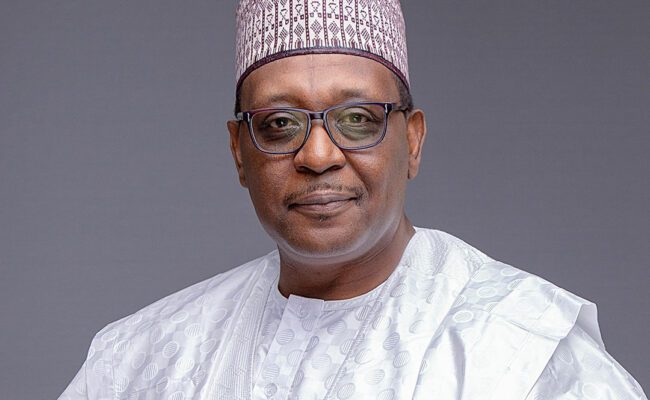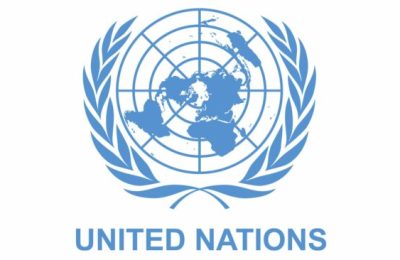
The Federal Government has pledged a robust health sector transformation as it emphasised on diagnostic medicine and collaborative pathology advances in Nigeria.
It said these align with the key priorities and initiatives of the government’s four-point agenda promises which are significant advancements in governance, population health outcomes, the healthcare value chain, and health security.

The Coordinating Minister of Health and Social Welfare, Prof Muhammad Ali Pate disclosed this at a three -days joint 3rd African Assembly of the International Academy of Pathology (IAP) and 14th Conference of the West African Division of IAP, (WADIAP), on Thursday in Abuja.
The conference which was organised by the International Academy of Pathology has the theme, Evolutionary Trends in Modern Pathology Practice, while the sub-themes are: The Role of Pathology in Personalised Cancer Care.
The conference also highlighted the Value of Artificial Intelligence in Anatomical Pathology practice, Multi-specialisation in Pathology practice in low and medium-income settings, Biorisk Management (BRM) in the era of emerging and re-emerging infections and Finance management dexterity in pathology in low-income settings.
Pate who was represented by the Permanent Secretary, Daju Kachollum stressed the key priorities and initiatives, of the government’s four-point agenda promising significant advancements in governance, population health outcomes, the healthcare value chain, and health security.
He said that a focal point of the government’s strategy was the emphasis on unlocking the healthcare value chain, particularly in diagnostic medicine.
“This includes a strong push for local manufacturing of health products, such as drugs, vaccines, laboratory reagents, and equipment, “she said.
While speaking further, the Minister cited Professor Martin Hale’s insights on the future of pathology labs in the next decade, urging a critical examination of these advancements for Africa.
Acknowledging challenges within the medical community, he urged professionals to avoid rivalry, stressing that efficiency and service quality are compromised when interprofessional conflicts persist.
“The Ministry of Health plans to conduct a diagnostic inquiry into interprofessional rivalry, to foster cordial working relationships and enable environments for better healthcare service delivery,” she said.
Despite economic challenges, he said that the government was resolute in its commitment to positive changes in the health sector.
“Concrete actions and strategies are being implemented to improve the welfare of health workers in Nigeria, demonstrating a proactive approach to overcoming fiscal constraints,” she said.
He said the assurance of support from ECOWAS, as articulated by the Chairman, President Bola Ahmed Tinubu highlights a broader dedication to regional health improvement.
“The commitment to bilateral and multilateral cooperation aims to enhance healthcare delivery across the region.
“The declaration of the third joint International Academy of Pathology African Assembly signifies a collaborative effort to advance pathology and healthcare.
“This assembly aligns with the broader goal of fostering cooperation and knowledge-sharing among pathologists and healthcare professionals.”
The President of the Nigerian Medical Association(NMA), Dr. Uche Ojinmah, emphasised the urgency for pathologists to take over hospital laboratories, he envisions a transformation in the practice of medicine.
Ojinmah said that the contentment with the current trend of pathologists assuming a more significant role and the subsequent digitalization.
He said the call for increased collaboration among pathologists reflects the desire for a more entrenched and broadly participative practice of pathology.
The Director General, National Institute for Cancer Research and Treatment (NICRAT), Prof Usman Malami Aliyu, emphasised the Institute’s pivotal role in spearheading efforts for global cancer improvement, including leadership in prevention, diagnosis, research, and treatment.
Aliyu underscored responsibilities such as policy drafting and collaboration with the government for effective implementation.
He said that the institute recognised the significance of pathologists, the establishment of a monitoring and evaluation unit, and the commitment to qualified personnel highlight its comprehensive approach to managing cancer and contributing to policy-driven decisions in the country.
Prof. Martin John Hale, IAP President, called for initiating the third African Assembly of the IAP, emphasising its integral role in education activities and regional collaboration.
Hale, who is also the converter IAP Africa Assembly and President South Africa Division, mentioned the successful past meetings hosted by different commissions demonstrate the continuity and significance of these gatherings.
He underscored the importance of anatomical pathology in future healthcare and the need for adaptation to new paradigms.
He recognised the organizing committee for a relevant program and highlighted the potential opportunities for medical specialists while cautioning against risks posed by advanced technology if not embraced.
He urged participants to be mindful of the future and acknowledged their contribution, including government dignitaries and ministers of health, noting it added a sense of collaboration.
The President, Prof. Edwin Wiredu, WADIAP, said that the Generalized Scientific Conference and the Africana Summit emphasised the Evolutionary Trends in the body of Pathology Practice.
Wiredu said that the themes, covering personalised cancer care, artificial intelligence, water specialization, biologist management, prenatal integration, and finance management, underscore the conference’s relevance to contemporary healthcare challenges.
He mentioned that the certificate program highlights the commitment to professional development, and the reference to Cambodia and the encouragement to network add a cultural and collaborative dimension.
Earlier, Prof. Saad Ahmed, Chairman of the local organising committee of the conference, called for intentional and collaborative efforts to address the challenges faced by pathology services in Africa.
Ahmed emphasised the need for a shift from traditional approaches, highlighting specific issues in histopathologic capabilities and practices.
“The focus on reviewing past work, examining ongoing progress, and proposing lasting recommendations reflects a commitment to advancing pathology for better healthcare outcomes, he said.
Additionally, he underscored the historical context and the urgency for governments and academia to address disparities in manpower distribution and improve the quality of pathology practices.
He said that the overall goal was to stimulate introspective analysis and encourage multisectoral interventions for the advancement of pathology services in the region.
READ ALSO FROM NIGERIAN TRIBUNE








